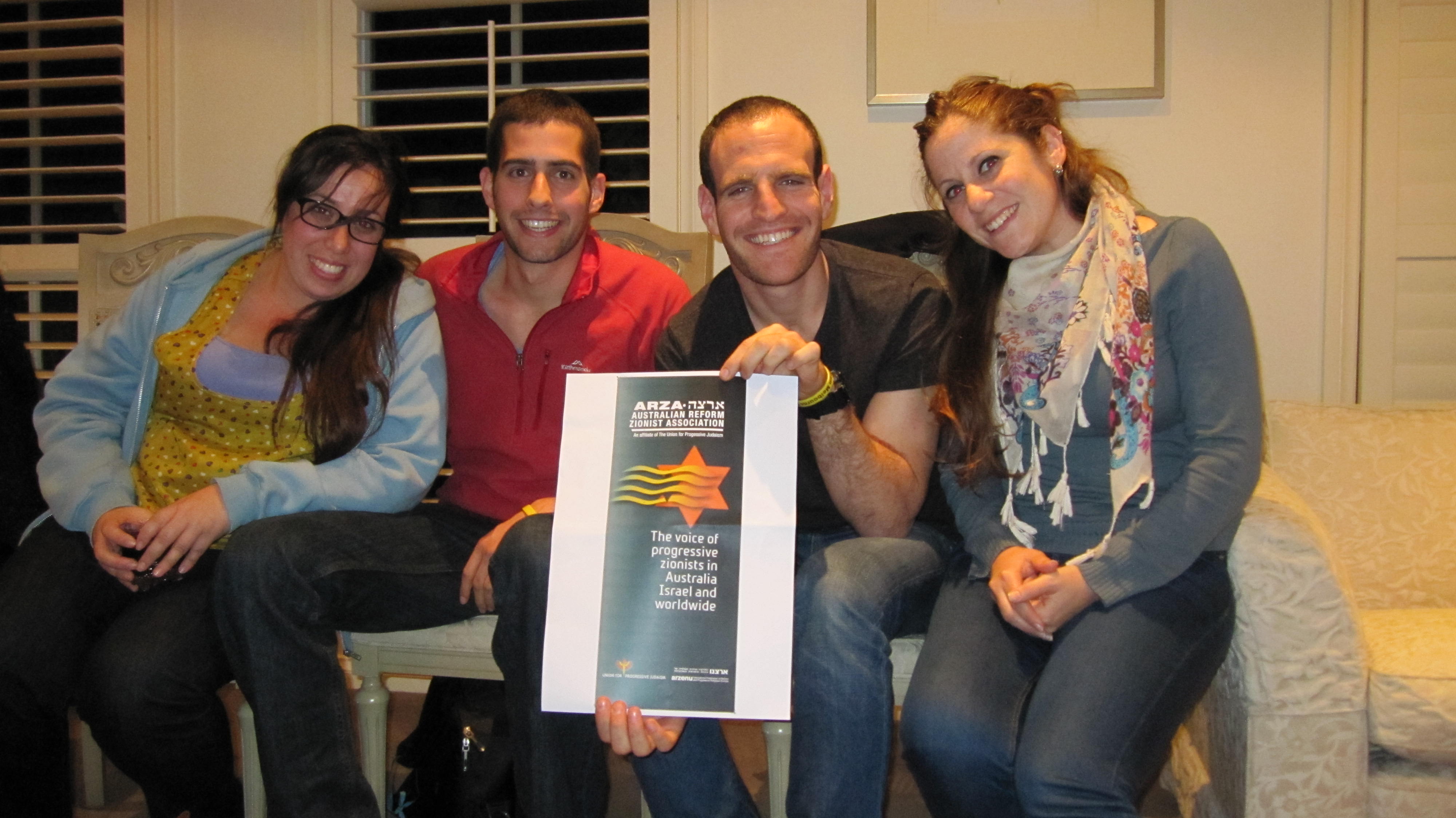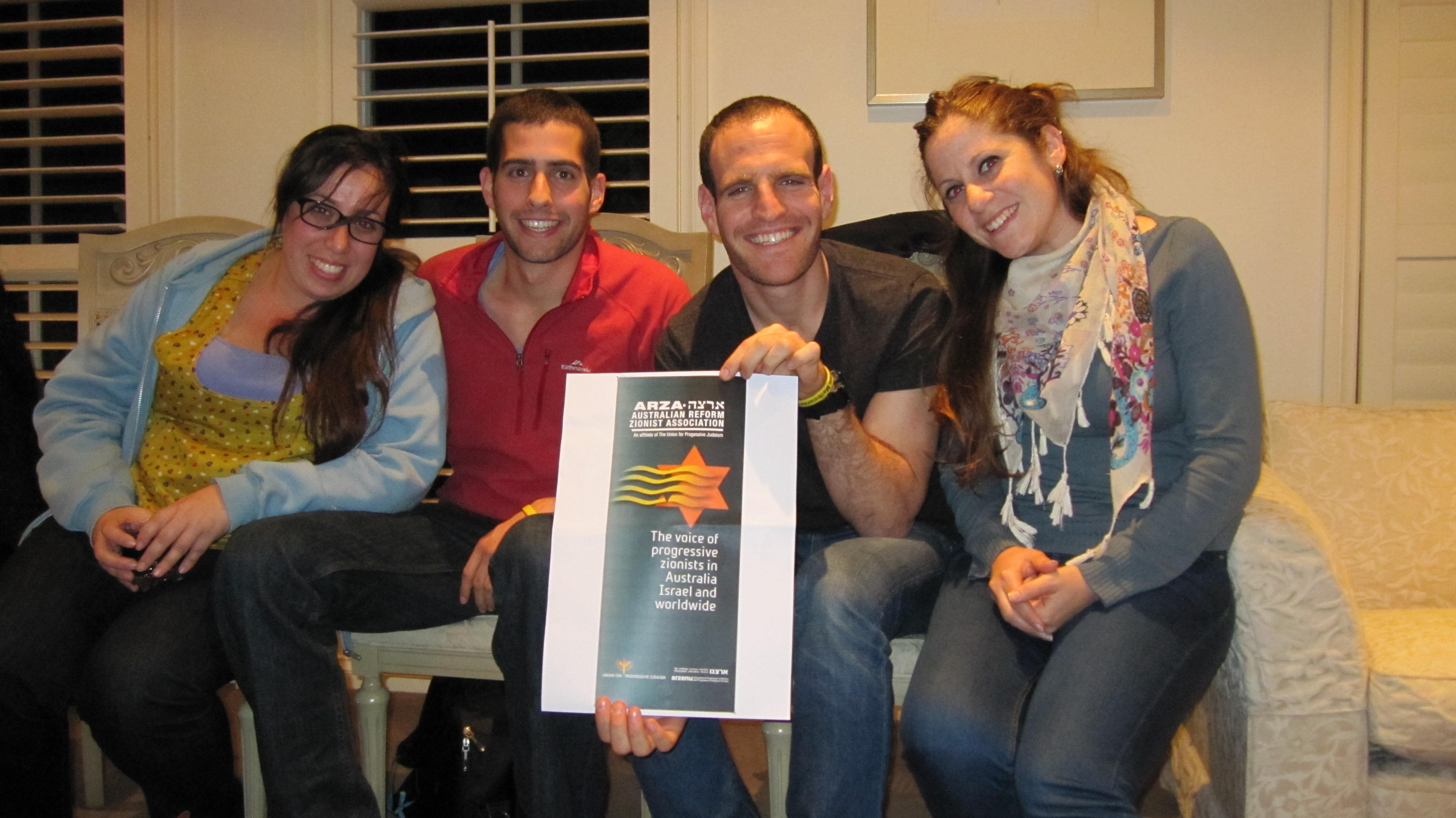 A most interesting panel discussion was held on 29 April featuring the four visiting shlichim. Adva Shapir, Vanessa Taylor, Shay Galperin and Nahumi Hay who, as young Israelis shared their perspectives of Zionism today.
A most interesting panel discussion was held on 29 April featuring the four visiting shlichim. Adva Shapir, Vanessa Taylor, Shay Galperin and Nahumi Hay who, as young Israelis shared their perspectives of Zionism today.
Each one talked a little about their backgrounds. Adva was born of Israeli parents, grew up in the north of Israel, was in the air force for 4 years and then studied International Relations at university. She related the experience of travelling around South America and realising that there is something special about Israel. . Adva has been a shaliach for the liberal movement in Britain and struggled with how to educate a left leaning community about the reality of Israel.
Vanessa was born to French parents and has been a shaliach in Paris. Hers was an orthodox religious upbringing and it was only when she went to Conservative youth movement activities that she discovered “another Judaism”. Serving in the IDF Vanessa spent time in the Education Force with recruits who undertake the army’s conversion course. .. Vanessa said that to her Zionism signified caring about Israel but also making a conscious choice to remain there and make a significant contribution.
Shay grew up in Ra’anana, his parents having made Aliyah from the former Soviet Union in the 1970’s. Shay said he is inspired by his grandfather who survived the Holocaust, was imprisoned by the Soviets for 10 years before going to Israel and using his engineering skills to help to build the country. Shay has been a youth leader at Reform movement summer camps in the US and South Africa. His field is photography and videography. Shay said that his mission is to use those skills to improve the image of Israel in the media.
Nahumi was born in Israel and spent his primary school years in Sydney before returning to Israel. to complete his education. He served in the artillery forces of the IDF as well as the education force. His plan is to study government and politics and work in a related field.
All four were in agreement that Israel is the best possible place for them to live, work and serve despite it being easier ( economically, security wise etc) to live elsewhere. They were unanimous also about trying providing the diaspora with the “whole picture” of Israel. By this they meant the achievements as well as the struggles and internal issues. They were optimistic about the chances of greater unity and change from the new parties in government
Adva summed it up when she urged us, in the spirit of Reform Zionism to visit, learn, talk to people, criticise and then help to make Israel a better place. Listening to them we were all enlightened and energised by their insights and enthusiasm. We are grateful to Centre for Living Judaism for sponsoring the Zionist Seminar program and to ARZA for supporting the event.
Rebecca Silk

